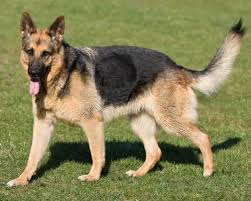Are cooked potatoes good for dogs? To quickly answer your question, yes. Dogs can have potatoes. Potatoes are nutrient rich vegetables that provide a healthy serving of vitamin C, vitamin B6, iron, and magnesium. The combination of these vitamins and minerals can have positive effects on your dog’s immune and nervous systems.
What happens if a dog eats potato? If you suspect your dog ate a piece (or more) of raw potato, watch out for symptoms of solanine intoxication which might include vomiting, diarrhoea or lethargy. Make sure you get in touch with your vet as soon as possible so you can get your dog the help they need as quickly as possible.
How much potato can a dog eat? In general, you can share potatoes with your four-legged friend as a treat following the 10% rule, which states treats should make up no more than 10% of your pet’s daily calories. If your dog suffers from diabetes, avoid potatoes altogether as they could cause blood sugar spikes.
Can a dog eat mashed potatoes? Can you give your dog mashed potatoes? Mashed potatoes are a healthy snack for your dog if they are prepared correctly. Roasted potatoes, boiled potatoes, or steamed potatoes that don’t include butter, gravy, fats, salts, or seasonings are the right way to offer them to your dog.
Are cooked potatoes good for dogs? – Additional Questions
Why can’t dogs have boiled potatoes?
White potatoes are vegetables in the nightshade family that contain a compound called solanine. This is toxic to dogs, and therefore, they should never eat raw potatoes. Cooking a potato helps reduce the amount of solanine so that it’s safe for dogs.
Can dogs have cheese?
Yes, dogs can eat cheese. In fact, cheese is often a great training tool, especially for puppies.
What Thanksgiving food can dogs not eat?
Thanksgiving tends to coincide with an uptick in vet visits, due to dogs being fed unsafe human foods. Turkey meat, sweet potatoes, and pumpkin are all safe, healthy foods to share with your dog. Bones, sweets, alcohol, and fatty foods are all things that should be avoided by dogs.
Can dogs have mashed potatoes and gravy?
No, dogs should not eat Mashed Potatoes with gravy.
Although the salt makes gravy appealing to us, it gives gravy more sodium than a dog can take safely. Gravy may also contain onion or garlic flavoring, both of which are toxic to dogs.
Can dogs have milk?
Milk is a safe treat in small quantities. A few tablespoons of cow’s milk or goat’s milk on an occasional basis can be a nice reward for your dog. But, you should probably hold off on offering your dog an entire bowl in one sitting, as it can cause unpleasant reactions, including diarrhea, vomiting, and loose stools.
Why can’t dogs have ham or mashed potatoes?
Meat Fat, Bones and Skin
Dogs should not be offered meat with bones, excess fat, skin or drippings, as these pose grave risk for conditions such as gastrointestinal blockage or injuries. They can also lead to more complex diseases like pancreatitis.
Can dogs eat pasta?
Dogs can eat plain white rice or pasta after it’s cooked. And, a serving of plain white rice with some boiled chicken can sometimes make your dog feel better when they are having stomach problems.
Why can’t dogs eat pork?
Eating raw or undercooked pork is not safe for dogs or humans due to the parasite trichinella spiralis larvae, which can cause a parasite infection known as trichinosis. An infection transmitted by pork meat, it can occur when a dog eats the muscles of animals infected with the trichinella parasites.
Can dogs have broccoli?
Yes, dogs can eat broccoli. Dogs can eat the vegetable both cooked and raw, as long as there are no seasonings or oils added. However, this vegetable should always be given in very small quantities, especially because the florets contain isothiocyanates, which can cause gastric irritation in dogs.
Can dogs have cucumbers?
Are Cucumbers Safe for Dogs? Cucumbers are perfectly safe for dogs to eat, and offer a low-calorie, crunchy snack that many dogs love. Cucumbers only contain about 8 calories per one-half cup of slices, compared to the 40 calories in a single medium biscuit, and are very low in sodium and fat.
Can dogs have tomatoes?
Dogs can eat tomatoes but only in small amounts. Ripe tomatoes are considered nontoxic to dogs and can be fed in moderation as an occasional snack.
What is the best vegetable for dogs?
Dog-Friendly Vegetables
- Carrots.
- Green Beans.
- Broccoli.
- Beets.
- Celery.
- Cucumber.
- Yams /Sweet Potatoes.
- Butternut Squash. Benefits: Butternut squash contains lots of vitamins and minerals like A, C, B6 and more which help your dog’s immune system, vision and cardiovascular function.
Can dogs eat ice cream?
Dogs Don’t Digest Milk Well
Eating ice cream may cause your dog a stomach ache or worse, depending on how sensitive they are. Ice cream can cause your dog gas, bloating, constipation, diarrhea or vomiting.
What is the best fruit for a dog?
The following fruits are safe for your canine pal to consume:
- Apples.
- Bananas.
- Blueberries.
- Cantaloupe.
- Cranberries.
- Cucumbers.
- Mango.
- Oranges.
What fruits can dogs not have?
contain cyanide and can be extremely harmful to your dog and even prove fatal. Notably fruits like apples, cherries, plums, peaches etc.
Can dogs have popcorn?
Plain, air-popped popcorn is safe for dogs to eat in small quantities. Buttered popcorn or popcorn with other toppings is not safe for your dog on a regular basis, although eating a few dropped pieces here and there probably won’t hurt him.
What veggies can dogs not have?
Onions, leeks, and chives are part of a family of plants called Allium that is poisonous to most pets, especially cats. Eating onions can cause your dog’s red blood cells to rupture, and can also cause vomiting, diarrhea, stomach pain, and nausea.



